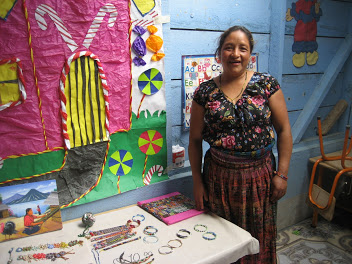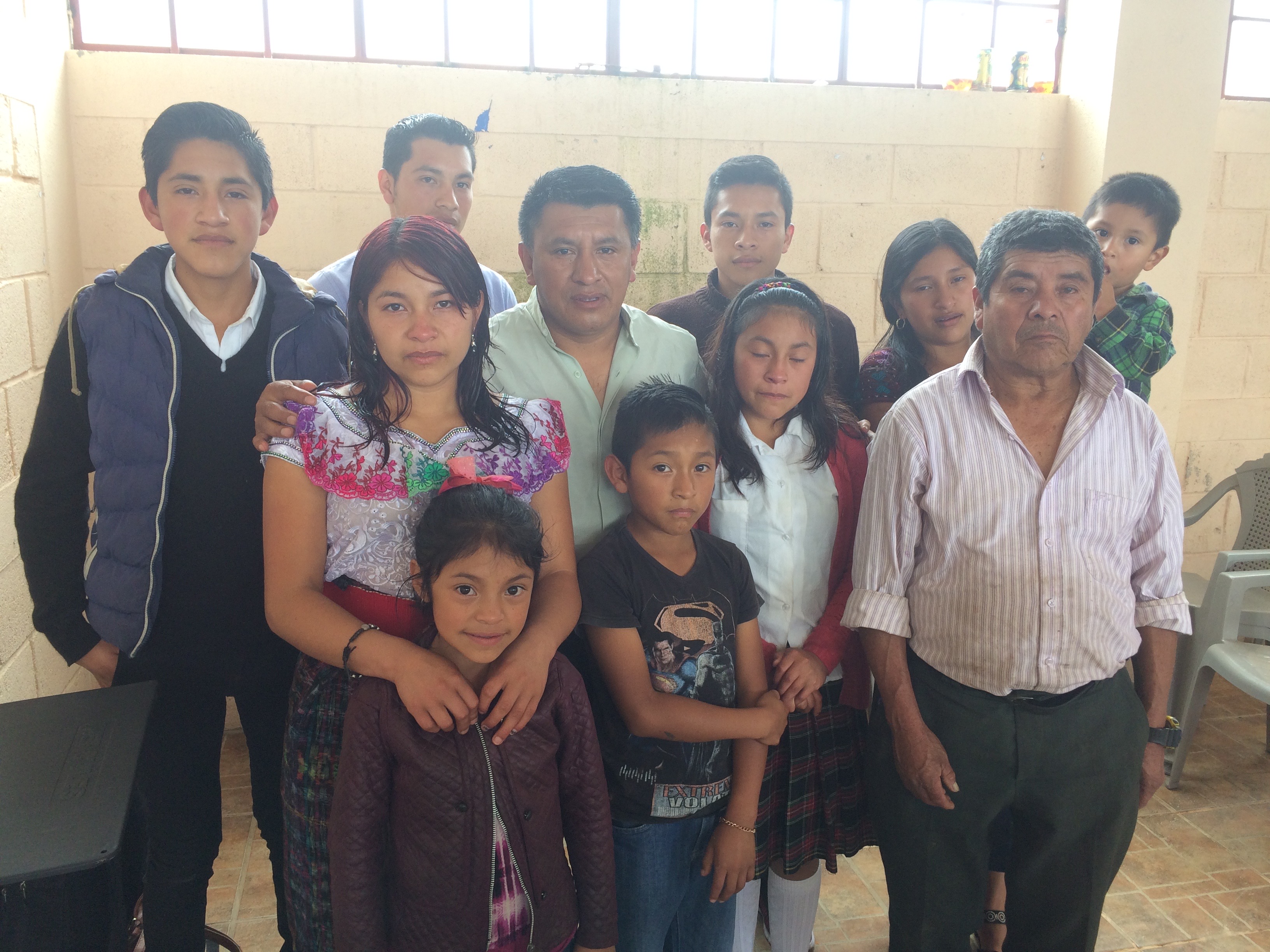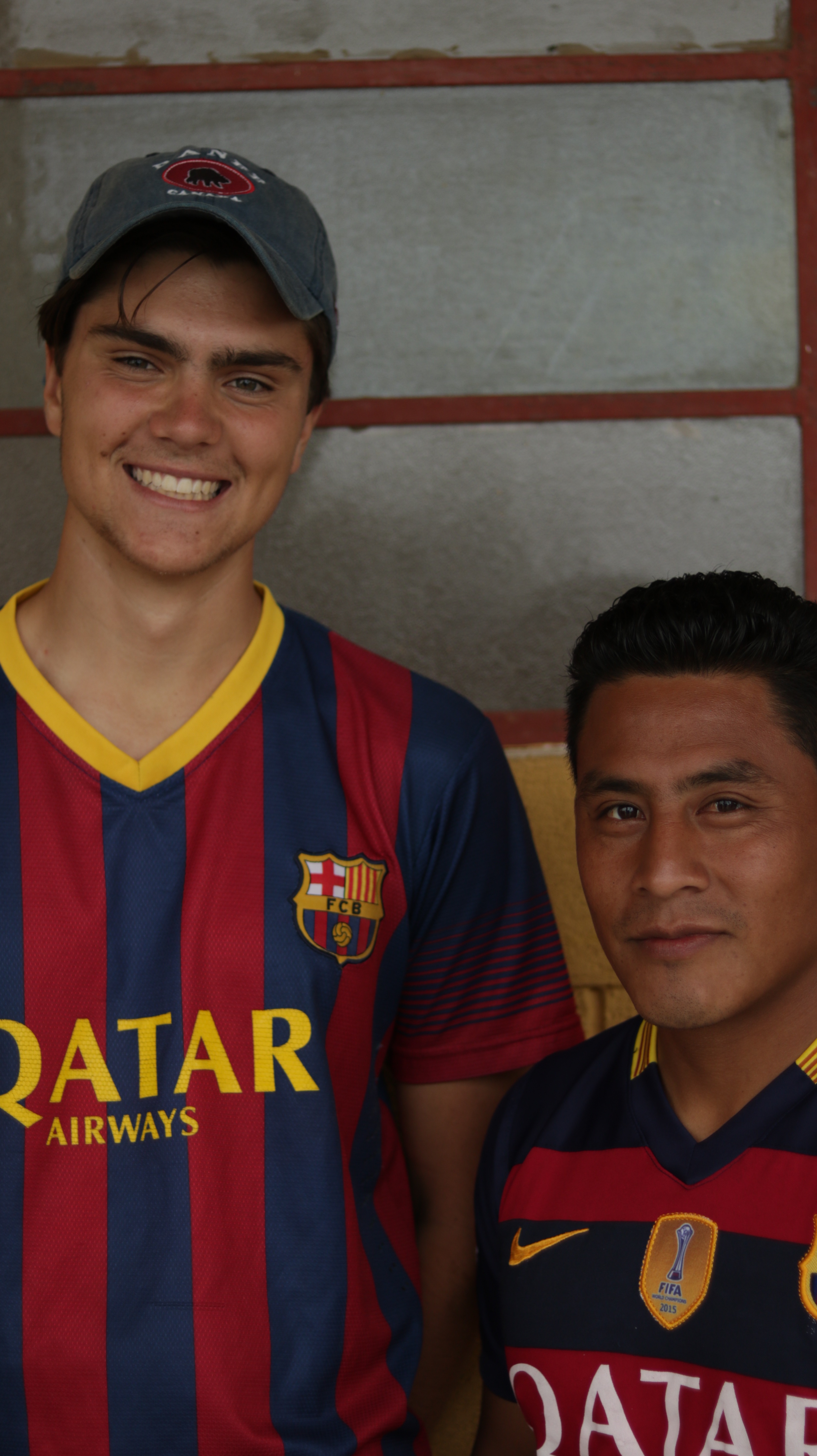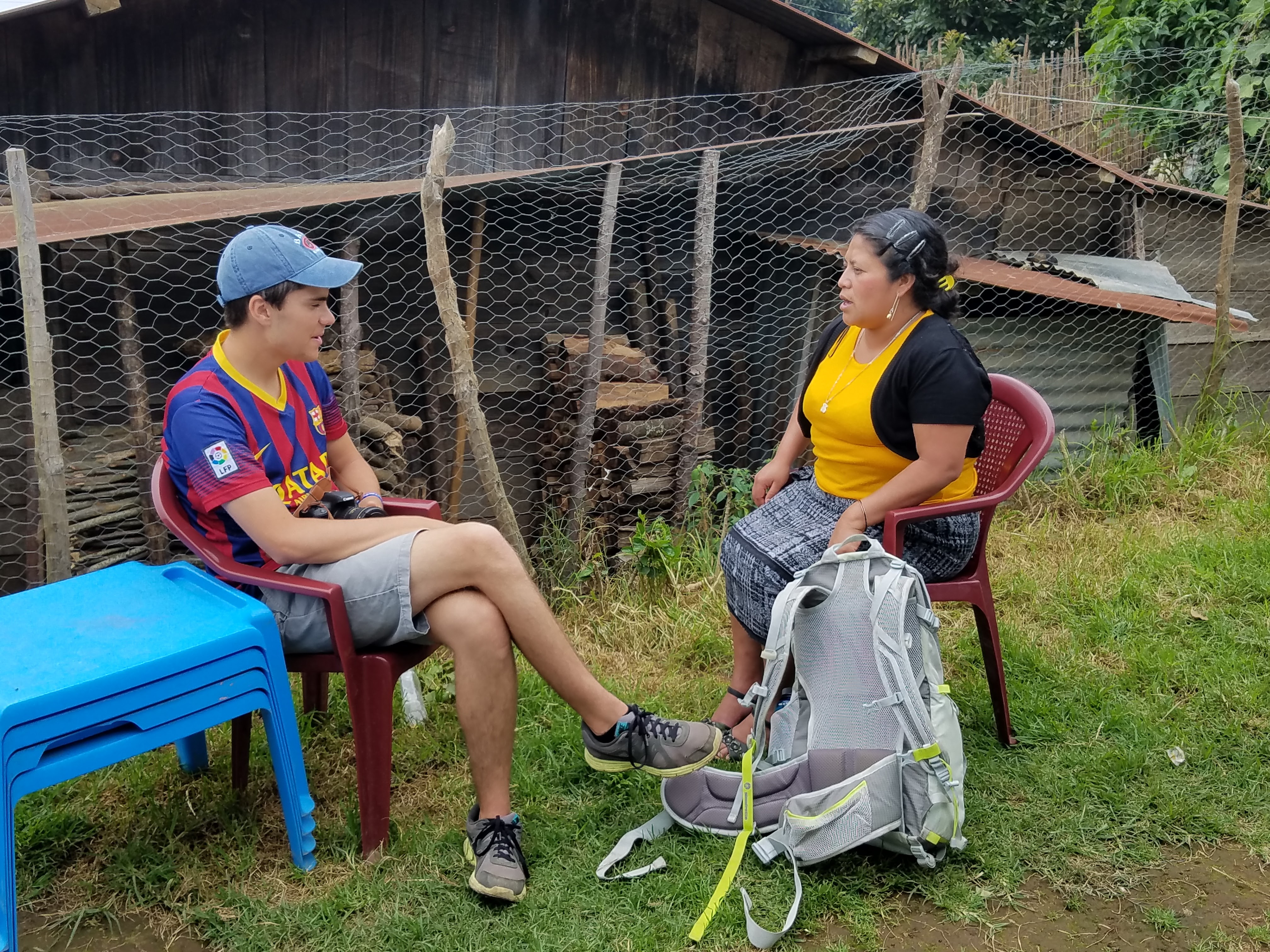 As soon as her face appeared on the screen, her husband began to sob. He cried loudly and his moans filled the packed classroom. I began to cry too as I heard his grief. I glanced around and saw everyone else—the middle school students, the teachers and her family–wiping away tears as well.
As soon as her face appeared on the screen, her husband began to sob. He cried loudly and his moans filled the packed classroom. I began to cry too as I heard his grief. I glanced around and saw everyone else—the middle school students, the teachers and her family–wiping away tears as well.
We were watching a video of Dominga, which my son had filmed two years ago. In the video Dominga is full of life, laughing, smiling and at times tearful as she describes challenges in her life. It’s hard to believe that this lively woman in the video died of a sudden brain hemorrhage only three months later. She was 40 and left behind a husband and nine children.
“I have fought all my life,” Dominga says in the video. “And God has helped me.”
After the film ended, people began to talk quietly. Dominga’s family—her nine children, husband and father–approached me with a USB stick in hand, hoping to get a copy of the video. They were full of thanks and appreciation.
“Before now, we only had a photo (of Dominga),” her son told me. “Now we have this video. Thank you so much. We are so grateful.”
I asked if I could take their picture and they stood huddled together in the corner of the classroom. I looked at the group and noticed Dominga’s father but no older woman who could be her mother. Later someone told me her mother had decided not to come. She was still mourning the loss of her daughter two years ago and thought it would be too difficult to view the film.

Dominga’s family never got to say goodbye. Her father told me what happened. One day Dominga suddenly fell to the floor. They realized it must have been a stroke but they thought she would survive. They drove her two hours to the closest hospital in Sololá and she was treated. She was in a coma for a few days but never came back. No one could believe it.
Showing the video of Dominga was probably the toughest thing we did in our trip to Guatemala last week. I knew it would be hard for the family. Yet the experience also helped me see that our relationship with the people in Panyebar is even closer than before. We’ve walked with them through trials and tribulations. And despite language barriers and cultural differences that can separate us, we share so much. We can be sad together over our lost sister but also happy as we see the smiles of the children playing and laughing in the preschool where she worked.
And life does go on. God is blessing Dominga’s children. Her oldest son, Hermoncindo, has finished his law degree, a huge accomplishment for a rural Guatemalan. He told me he is hoping to find a job with the government but it will be tough and costly to apply for. Dominga’s daughter Lucia, who had to take time off from school due to a back injury, and then filled in for her mother at the preschool for two years, is planning to return to the university in a few months. She hopes to get a degree that will allow her to direct a school someday.
In the video, Dominga talks about the fact that she never got a degree. Despite this, she says, she is happy. She loves her children and the many children at the preschool where she works.
In fact, only about half the children in the village attend school, let alone get a degree. In many cases, their parents discourage them. They would rather see their kids working and earning money than going to school. In other cases, parents want their children to attend school can’t afford to buy the necessary school supplies and uniforms.

Abel (left, with Miguel) is the young and dynamic head teacher at the middle school. He knows how to give a good speech and draw in an audience. After we showed the video, Abel talked to the students in the room about how Dominga and Juana (the other woman featured in the video–and Abel’s sister) were incredible examples of hard work and sacrifice for the community. They didn’t get degrees, but both of them overcame difficulties and hardships to serve their community.
“It is a privilege to be able to attend school,” Abel said, “You should always work hard and be grateful.”
After the movie, Juana told me that Dominga had been incredibly excited to be filmed.
“ ‘We’re going to be movie stars!’ she kept saying,” said Juana.
Juana also told me that Dominga scolded her for crying during her on-film interview.
“You shouldn’t cry!” she said.
But then when it was her turn, Dominga cried as well.
As I reflect more on the film, I feel thankful that Dominga and Juana were brave enough to share their lives in the film. It’s not always easy to be vulnerable. I’m also thankful to Miguel for his hard work editing, creating subtitles and selecting beautiful Guatemalan guitar music. I am proud of his work. (The photo at the end of this post shows him interviewing Juana two years ago.)
The day after we showed the film, we were invited to a service of “acción de gracias” (thanksgiving) for the middle school’s 15th anniversary. It was touching that the teachers had waited for our arrival to celebrate this milestone. First, they served our entire group of 23 a delicious lunch of chicken, rice and tortillas. Then, along with the middle schoolers and people from the community, we packed out a nearby church, where we listened to music and testimonies for the next three hours. Afterwards, students came around with “refacciones”: trays of sweet tea and biscuits.
Many more times over the week we were offered words and gifts of gratitude. It’s true that it’s no small matter that they have a quality middle school and preschool in their little town. At the same time, the enormous appreciation they express is a lesson for me not to take anything for granted. As so often happens on trips like these, they taught us more than we taught them.
Be vulnerable. Be grateful. Live a loving life. This is what I hope to remember from our week in Panyebar.

Postscript: If you’d like to help a child in Panyebar attend middle school and continue on in their education, we’d love to have your support! There are currently about 30-35 of us who give a monthly contribution of between $25 and $200 to the school through our 501(c)3, Mayan Partners. To contribute, visit the Mayan Partners web site www.mayanpartners.org and let me know so we can add you to our list of supporters. Thank you!
